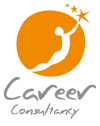‘My boss had quite a vendetta against me and it ended up with him pretending to make me redundant.’
And the phone call sometime later.
‘Catherine, can you tell me more about this person you are working with? I was going to recommend her for the job but then she just seemed to have a melt down. She went on and on about how awful her former boss was. Talk about all the gory details! Is there something wrong with her?’
The horrified voice down the line was that of a Recruiter I knew. I had suggested that she chat to my client, Jenny, about a role she was running. Unfortunately, Jenny’s phone interview with the Recruiter had taken place before I had a chance to prep her about interviews. And, no surprises, Jenny dropped out of consideration for the role.
At our next meeting, Jenny and I debriefed her phone call so that she was better prepared next time for the potentially awkward question that she had answered so unwisely: ‘Why are you leaving your current job?’
Here, below, are suggestions for tackling this as well as other potential interview traps you are likely to face.
1. ‘Why are you leaving your current role?’
Unfortunately, there is no copybook answer to this question. Your response will depend a great deal on your particular circumstances. If you have only been in the job for a year, your answer will be totally different than if you have been there for 15 years. If your role has been made redundant, this can shape your answer.
At a minimum, you should never criticise your current/previous employer or organisation. And, of course, avoid such hoary old statements as: ‘I’m looking for new challenges.’
2. ‘Tell me a little bit about yourself.’
This is a standard opening interview question – almost everyone asks it. I hear some truly dreadful answers from my clients when they first practise answering it. Yet, answered with skill, this is a wonderful opportunity to start your charm offensive. Don’t forget that one of your tasks in an interview is to make your prospective boss WANT to work with you. I often call it “passing the Aeroplane Test”, as in ‘I’d enjoy spending five hours sitting next to you on a plane’.
Start with something brief and memorable about your personal life and then move to work content. Avoid sterile language that has no emotion attached. You might want to talk about why you chose the field you work in. Be animated. Sound enthusiastic. Say interesting things. Don’t forget that in a recent Jobvite survey, 33% of 2000 bosses reported making up their minds about candidates in the first 90 seconds even though an average interview lasts 45 minutes.
3. ‘Define Leadership.’
I rarely meet any Professional or Executive who can come up with a coherent definition of Leadership off the cuff. The first step, then, is to do your thinking. Not just about obvious concepts such as Leadership, but any other issues that are currently flavour of the month in your professional field.
The next step, if you truly wish to excel at interviews, requires you to understand that your job is NOT to answer the questions. Your job is to use each question as a prompt to selling yourself.
Time for a detour here. Most people approach an interview on their best behaviour, eager to answer every question absolutely perfectly.
I take quite a different approach: I train my clients to break the nexus between the question and the answer. They then use the split seconds between the question and their response to think through: ‘What do I want them to think about me and what shall I say here?’
Of course, there needs to be a strong link between the question and your answer (unlike politicians), but cut yourself some slack here. In this instance, morph from the definition of leadership to a pertinent, compelling example of when you actually showed leadership.
Your interviewer probably won’t notice that you’ve done this. Even if they do, they’re generally grateful. After all, they need concrete information to give themselves a feeling of comfort that you are going to be an excellent hire.
4. ‘What do you know about our organisation?’
I’m presuming that you have done your homework and thoroughly researched the organisation. However, with so much information available, it can be difficult to know just what to say.
At a minimum, avoid the mundane. Again, frame your answer based on what you want them to think about you. If it’s that you are values driven, for example, talk in an interesting way about how their values resonate with you. If it’s that you’re a creative problem solver, highlight a recent innovation they have come up with and make it clear that you are on the same wavelength.
Sound sensible. Above all, sound normal.
5. Silence, after that tired old question: ‘Tell us about a weakness that you have.’
You’ve answered their question and yet the interviewer says nothing.
Now, Australian interviewers don’t usually try to trap candidates. Generally, they set up an interview to allow applicants to shine. Occasionally, however, an interviewer will try this trick to see if you will keep talking, revealing more and more weaknesses.
Stand your ground. You’ve given them your answer. Don’t be tempted to provide another weakness. If the pause becomes awkward, make a joke about it in a way that shows that you have said your piece and that you know what they are attempting to do.
6. ‘Who do you admire most in the world?’
There’s not much that you can do to prepare for unusual questions like this. When I hired a new staff member a few years ago, I asked candidates a string of unusual questions, ones that they could not possibly have expected. It was amazing what their answers revealed.
These sorts of questions reward deeper thinkers so an obvious place to start is with thinking about life’s issues. It wouldn’t hurt to google “unusual interview questions” and peruse them carefully.
Missing Out and Moving On
Sometimes, after an interview you will miss out on a role. It happens to all of us. And sometimes, it’s good that you miss out. There is very often a mismatch between a perfectly good candidate and the role on offer and it’s better that at least one party realises before a job offer is made. If so, we pick ourselves up, dust ourselves off and get on with our job search.
What I find such a pity is the totally avoidable situation where you are well suited to the role but you miss out because of poor interview skills.
I often say to my clients: ‘I can’t change who you are, I can just make you cleverer than your competitors so that you get the job and they don’t’. Really what we are talking about here is when you are one of the competitors who misses out because of an unintelligent approach to interviews.
Don’t let it happen.
Like what you’ve read? Subscribe to our newsletter by clicking here. You’ll be the first to hear about our updates once a fortnight!


